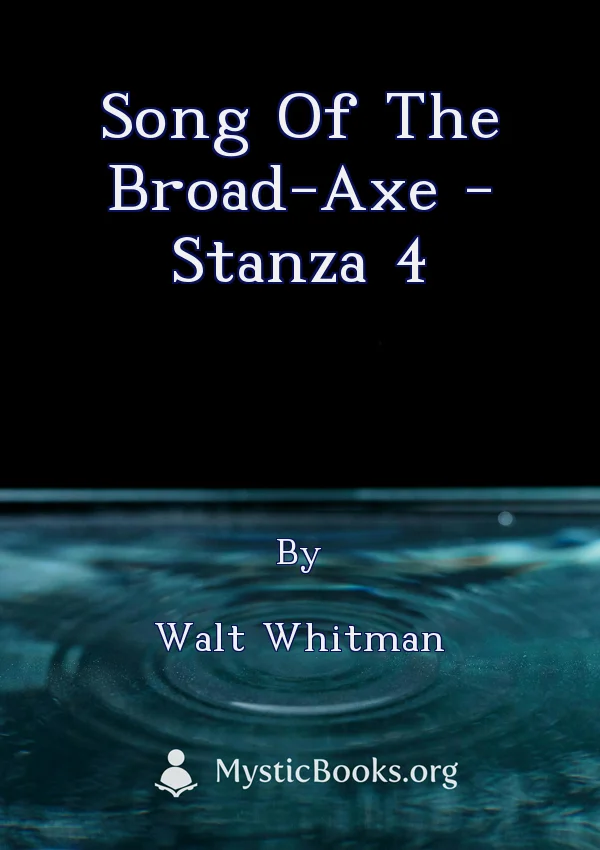
Song of the Broad-Axe - stanza 4
by Walt Whitman
'Song of the Broad-Axe - stanza 4' Summary
In this excerpt, Whitman uses the image of the broad-axe to symbolize the power and potential of human creation. He celebrates the physical prowess of the laborer, linking the axe to the masculine and the creative forces of nature. The poem emphasizes the dignity of work and the importance of self-reliance, aligning with the values of American democracy and the spirit of individualism. The imagery of the axe cutting through wood becomes a metaphor for the individual carving out their own path and contributing to the creation of a larger society. Whitman's use of free verse and his direct, earthy language create a powerful and evocative poem that celebrates the power of human action and the beauty of the natural world.Book Details
Language
EnglishOriginal Language
Published In
Genre/Category
Tags/Keywords
Authors
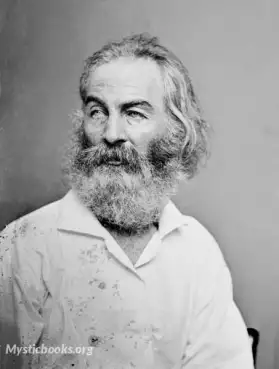
Walt Whitman
United States
Walter Whitman was an American poet, essayist, and journalist. A humanist, he was a part of the transition between transcendentalism and realism, incorporating both views in his works. Whitman i...
Books by Walt WhitmanDownload eBooks
Listen/Download Audiobook
- Select Speed
Related books
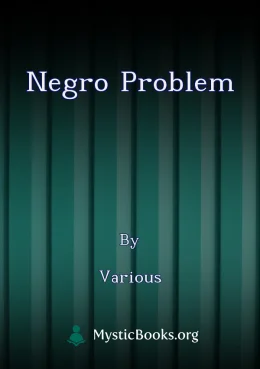
Negro Problem by Various
This collection of essays, edited by Booker T. Washington, is representative of what historians have characterized as "racial uplift ideology." These...

To Mrs. De St Croix on Her Recovery by Thomas Love Peacock
It is a charming and witty poem that celebrates the recovery of a dear friend. Written by the famous English novelist and poet, this work showcases Pe...
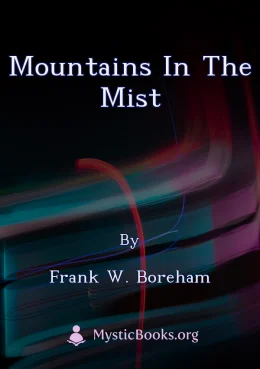
Mountains in the Mist by Frank W. Boreham
Frank W. Boreham, a renowned preacher, weaves together his profound insights on spiritual truths with vivid imagery of mountains shrouded in mist. Thi...
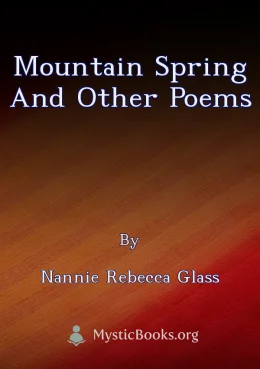
Mountain Spring and Other Poems by Nannie Rebecca Glass
This collection of poetry, penned by the Virginia poet Nannie Rebecca Glass, explores the themes of nature and religion. Glass's verse offers intimate...

Borough by George Crabbe
The Borough by George Crabbe is a collection of poems that offers a realistic depiction of village life in the east of England in the late 18th and ea...
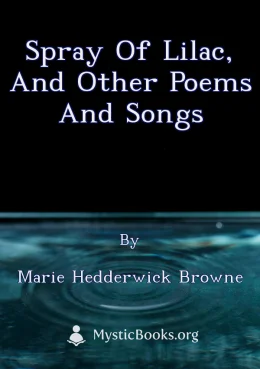
Spray of Lilac, and Other Poems and Songs by Marie Hedderwick Browne
Spray of Lilac, and Other Poems and Songs by Marie Hedderwick Browne is a collection of poems influenced by the author's Scottish upbringing and herit...

Random Readings In Racy Rhyme: A Repast For The Recluse, A Refreshment For The Railway Reader by Charles Harwood Greene
This poetry showcases Greene's wit and humor, as he explores various topics ranging from love and romance to the everyday struggles of life. The poems...
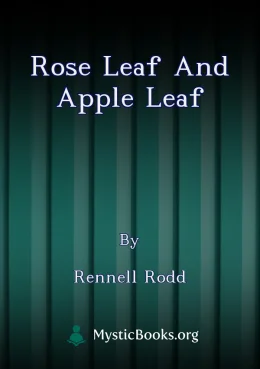
Rose Leaf and Apple Leaf by Rennell Rodd
This volume represents the debut collection of poetry by Sir Rennell Rodd, a prominent British diplomat, poet, and politician. His friend Oscar Wilde,...

The Poet and The Baby by Paul Laurence Dunbar
What if a baby could inspire a poet to write the most beautiful poems of his life? The Poet and the Baby is a collection of poems by Paul Laurence Du...
Reviews for Song of the Broad-Axe - stanza 4
No reviews posted or approved, yet...
